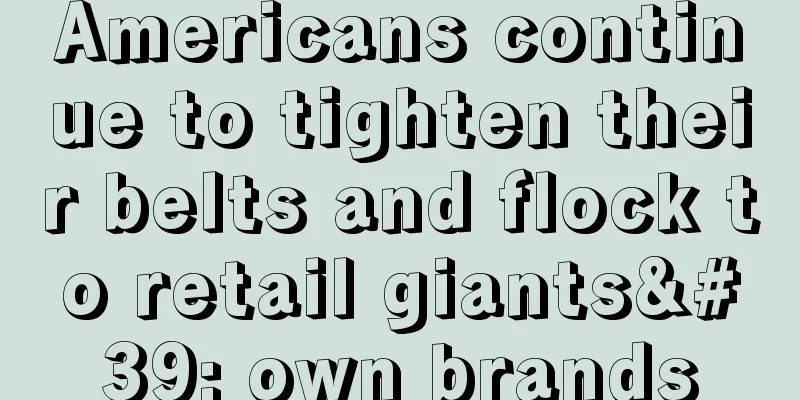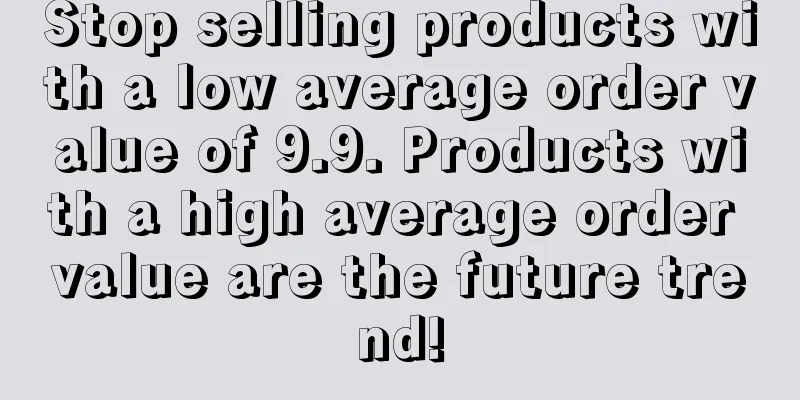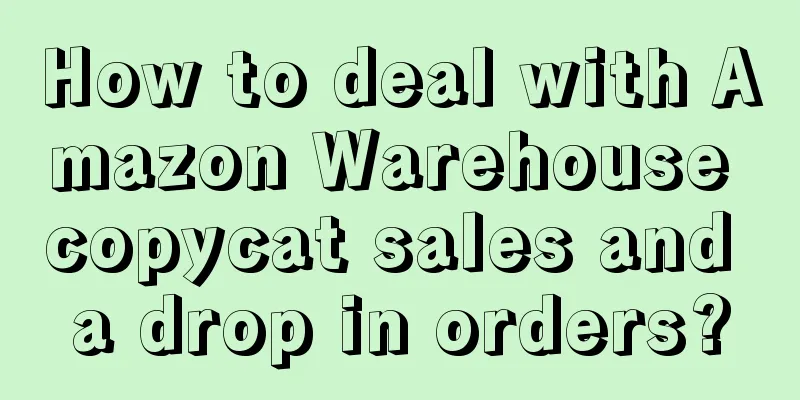Americans continue to tighten their belts and flock to retail giants' own brands

|
According to the latest data, US consumer confidence fell again in February, and expectations for the future are still at a level that indicates an impending recession. Against this backdrop, more and more people are turning to buying private-label goods from retail giants, and various brands are taking steps to seize the market. These brands will become rivals that cannot be ignored by cross-border e-commerce sellers going overseas. U.S. consumer confidence falls as recession fears grow According to data from the Conference Board, a nonprofit research organization, the U.S. consumer confidence index fell for the second consecutive month in February to 102.9 from 106 in January, lower than Wall Street's previous forecast of 108. The expectations index, which measures consumers' attitudes toward the health of the economy over the next six months, also fell to a seven-month low of 67.9. The report said that a reading below 80 typically indicates a recession next year, and the expectations index has been below 80 for 11 consecutive months in the past 12 months. Uncertainty about the U.S. economy is dampening consumer confidence and spending expectations. The median forecast for household spending growth fell to 5.7% in January 2023 from 5.9% in December, the lowest since January 2022, according to the New York Fed. This is the third consecutive decline in expectations. Meanwhile, the median expected growth rate for household income fell 1.3 percentage points to 3.3%, the largest single-month drop in the past 10 years. The committee's senior director Ataman Ozyildirim said the decline in consumer confidence reflects a "substantial drop" in household confidence among households with incomes of $35,000 or more and those aged 35-54. It is expected that spending cuts will become the mainstream consumption trend in the first half of this year. Retail giants' own brands become consumers' favorite According to a study by Attest, 73% of American consumers have become interested in private-label products from retail giants due to inflation and plan to continue buying them when the economy improves, while only 9% say private-label products are a temporary substitute for them. Last June, the Food Industry Institute (FMI) released a report stating that 41% of consumers bought more private label goods last spring than before the pandemic. Compared with special offers and promotions, lower prices are the main reason that attracts consumers to buy private label goods. In addition to the impact of inflation, the investment of major retailers in the quality and price advantages of their own-brand products in recent years has also attracted many brand-loyal customers. In 2021, a survey by FMI found that 91% of food retailers and manufacturers plan to increase their investment in private brands in the next two years. In addition, 58% of companies said they are expanding and improving their product lines. Recently, major retailers have begun to launch product lines under $5 to attract customers. For example, Target recently announced that it will start selling more private-label products under $10, and it revealed that last year, the company's sales of $3 decorations, $5 candles and $10 pillows grew strongly. In addition, as the recent sharp drop in ocean freight prices has provided room for retailers to further reduce the prices of their own-brand products. As the quality of their product categories continues to improve, they will also become a strong competitor to cross-border sellers going overseas. Editor✎ Ashley/ Disclaimer: This article is copyrighted and may not be reproduced without permission. |
>>: Usage volume crushes YouTube and approaches Netflix! American adults are crazy about TikTok!
Recommend
Walmart sells its outdoor e-commerce company Moosejaw, which was exposed to have management loopholes!
According to foreign media reports, Walmart recent...
How to optimize SP ads? Don’t ignore these six Amazon advertising reports
For sellers using SP ads, having a report that can...
What setbacks have sellers suffered before the Amazon Prime Day peak season?
For sellers, Amazon Prime Day is not just a promot...
What is Amazon’s Tax Free Program? Amazon’s Tax Free Program Review
Amazon implements the Tax Exemption Program (ATEP)...
Amazon Product Development Methodology and Practical Guide
In the fierce competition on Amazon, product deve...
Revealed! How service providers can reduce Amazon sales commissions
As an Amazon seller, have you ever thought about ...
Retail sales increased by 53.6% year-on-year! American consumers have a high demand for fashion categories!
It is learned that according to statistics from th...
Revealed! New directions of Amazon's popular categories that you don't know about!
text Amazon’s popular categories and niche produc...
What is ShipBob? ShipBob Review
ShipBob is a technology-oriented fulfillment and l...
What is Teezily? Teezily Review
Teezily is a French cross-border e-commerce platfo...
In-depth analysis of the review pitfalls! Is your review really safe?
Every Before the peak season of the year, Amazon ...
Teach you how to count the orders of Amazon's off-site discount codes in real time (2023 version)
text We have introduced the settings of discount ...
The internal logic of Amazon’s review capture!
Making reviews on Amazon is one of the most effec...
What are the essential elements to create a hit product on Amazon?
focus on What do we at Amazon care about most and...
Shein denies rumors of IPO in the US, Sino-US relations may be a stumbling block
According to Reuters, a source said Shein may go p...









